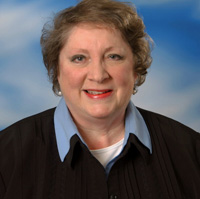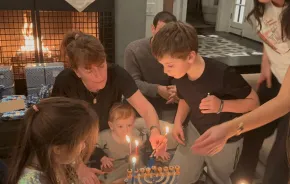
Q: With all the recent news about gay rights, I am realizing this is actually an issue that affects my family directly. I think my niece is gay. I am not sure how to talk to her about her life and her relationships. I want to be respectful and supportive. Any suggestions?
A: I posed your question to Megan Kennedy, a licensed mental health counselor at Youth Eastside Services and co-director of Put This on the Map, a documentary training film about youth gender and sexuality. Kennedy is also the facilitator for Youth Eastside Services’ BGLAD (Bisexual, Gay, Lesbian Adolescent Drop-in) program, a free drop-in support group. (See below for more information.)
Here is her response:
It can be hard for young people to talk to family members about their sexuality, because their identity or expression may not meet their family’s hopes and expectations. We can support our kids by not making assumptions about their gender or sexual orientation and by being aware of any limiting gendered pressures or expectations about type of dress, interests, and behaviors. There are simple shifts we can make in our language that may signal to young people that it’s okay to open up about who they are or who they like. A simple example is changing the question, “Do you have a boyfriend?” to “Are you interested in anyone?”
You may also consider showing your support on a non-personal level rather than asking your children or family members directly about their sexual orientation. Support can be demonstrated by talking openly about LGBTQ (lesbian, gay, bisexual, transgender or questioning) issues that are in the media and by becoming informed about local resources, such as LGBTQ support groups, arts or recreation programs.
It’s important to understand that even if you and/or your family are accepting, LGBTQ people face daily discrimination, limitations on opportunities, or are made to feel like an outsider; it helps if you’re attuned to whether discrimination may be happening during or after school. Knowing one has support around these issues is helpful, in addition to knowing one is loved at home. Sometimes family members need support when an LGBTQ family member comes out. There are local PFLAG (Parents, Friends & Families of Lesbians and Gays) chapters across the country where you can turn to ask questions and process emotions. For more information or to connect to a local PFLAG chapter in your community visit the PFLAG website.
Additional resources for LGBTQ kids
Safe Schools Coalition
Safe Schools Coalition works to help schools become safe places where every family is welcome, where every educator can teach, and where every child can learn, regardless of gender identity or sexual orientation.
Diverse Harmony
Diverse Harmony is the nation’s first gay/straight alliance youth chorus and is a safe, affirming environment where everyone is accepted for who they are. Youth ages 13 to 22 are encouraged to audition.
BGLAD
BGLAD (Bisexual, Gay, Lesbian Adolescent Drop-In) is Youth Eastside Services’ free drop-in support group, open to youth ages 12 to 19 who may identify themselves as lesbian, gay, bisexual, transgender or queer or who may be questioning their gender and/or sexual identity. The BGLAD group enables youth to meet their peers and discuss life issues in a safe and confidential environment. Trained professional co-facilitators help members feel welcome, ensure mutual respect, maintain confidentiality within the group and offer ideas and resources during group time.
GLSEN
GLSEN (Gay, Lesbian and Straight Education Network) strives to assure that each member of every school community is valued and respected, regardless of sexual orientation or gender identity/expression.
 Jennifer Watanabe is the parent coach at Youth Eastside Services (YES). She teaches Positive Discipline classes and provides individual parent coaching. As a Certified Parent Coach, she has vast experience teaching parenting classes, using research-based information on child development, temperament, discipline and emotion management. She specializes in helping parents who are longing for a better relationship with their children and who need a more effective way to discipline. Perhaps most importantly, Jennifer understands first-hand the issues parents face in our community.
Jennifer Watanabe is the parent coach at Youth Eastside Services (YES). She teaches Positive Discipline classes and provides individual parent coaching. As a Certified Parent Coach, she has vast experience teaching parenting classes, using research-based information on child development, temperament, discipline and emotion management. She specializes in helping parents who are longing for a better relationship with their children and who need a more effective way to discipline. Perhaps most importantly, Jennifer understands first-hand the issues parents face in our community.
Got your own parenting questions that you’d love to have answered? Email us at editor@parentmap.com.









